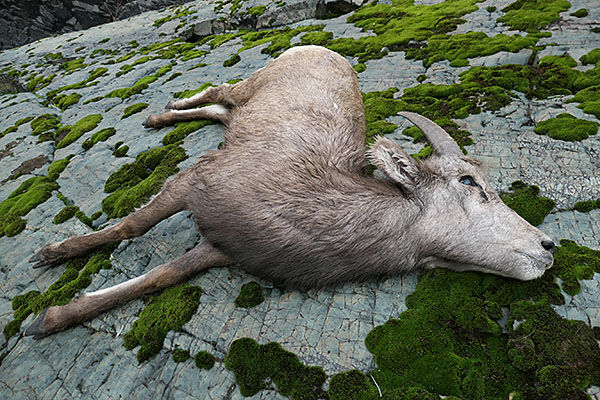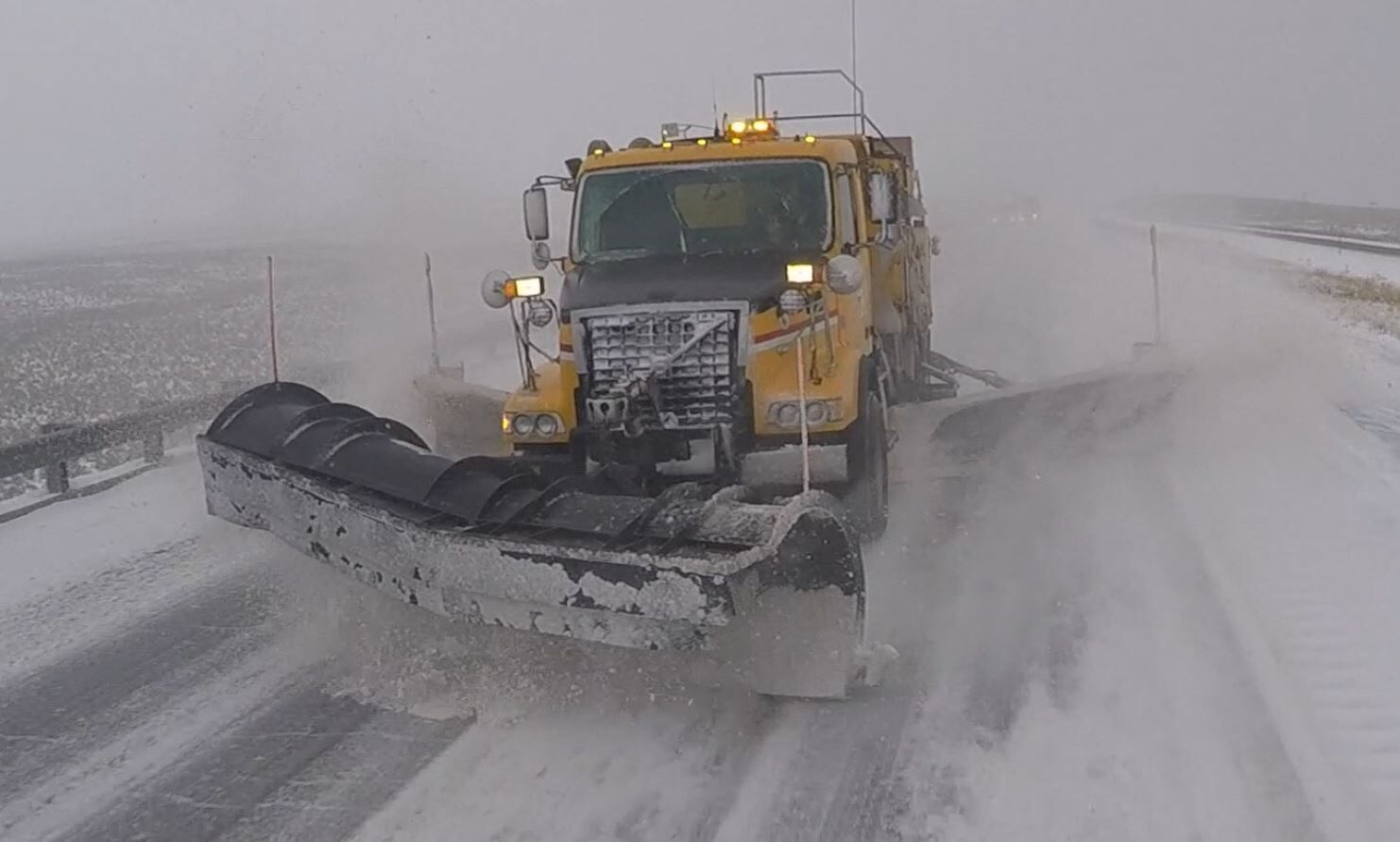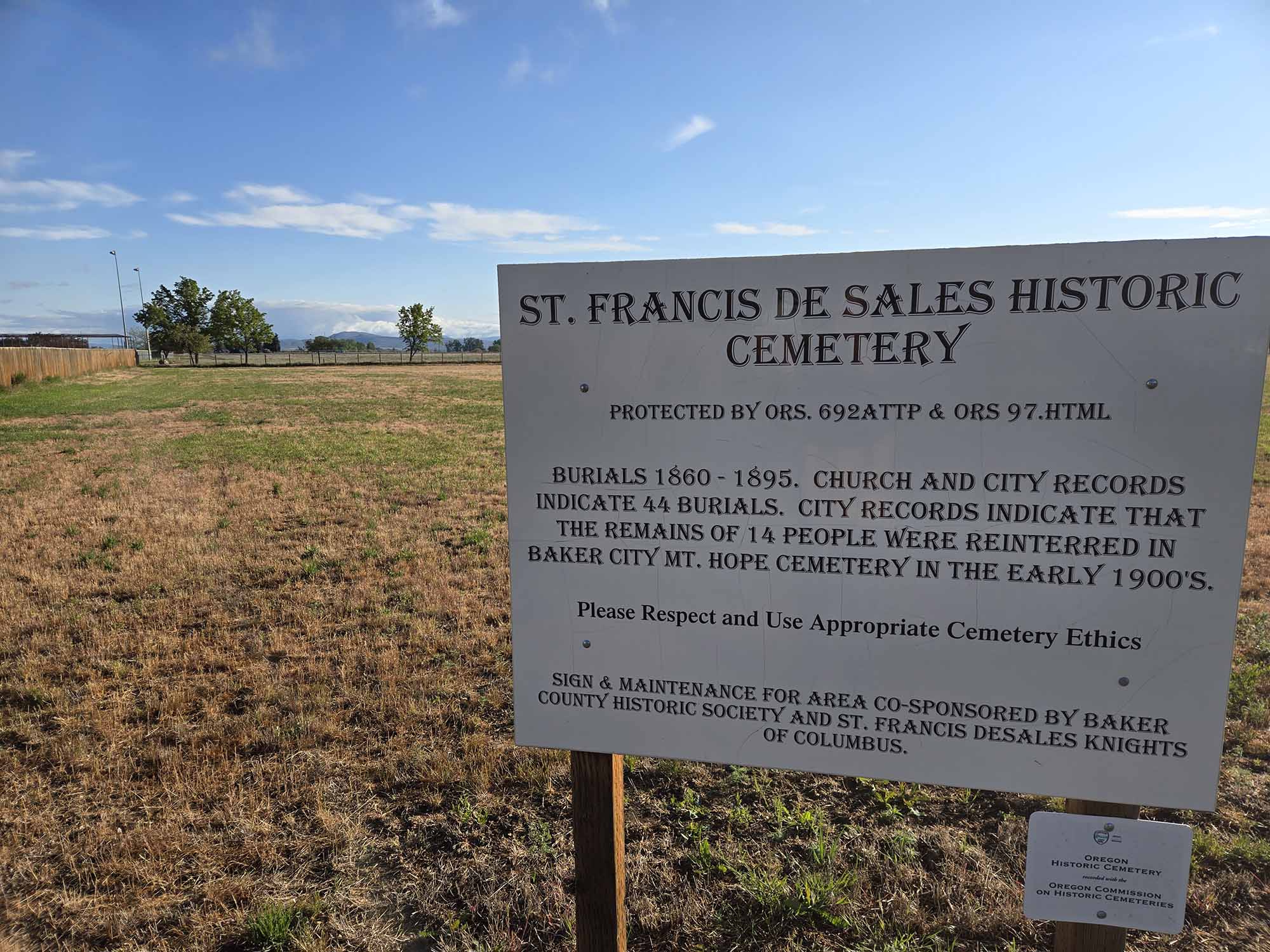Pneumonia outbreak killing bighorn sheep in Hells Canyon
Published 1:47 pm Wednesday, January 31, 2024

- A dead bighorn sheep on the Idaho side of Hells Canyon. Tests showed the animal was stricken with bacterial pneumonia.
LA GRANDE — A pneumonia outbreak is killing and sickening bighorn sheep in the northern part of Hells Canyon along the Snake River and tributaries, including animals in Oregon, Idaho and Washington.
Trending
The outbreak was detected in mid December and continues, the Oregon Department of Fish and Wildlife (ODFW) announced on Wednesday, Jan. 31.
ODFW officials are working with their counterparts from the Idaho Department of Fish and Game and Washington Department of Fish and Wildlife to monitor and deal with the illness.
It’s not clear how many animals have died in the first major pneumonia outbreak in that area since 1995-96, said Don Whittaker, an ODFW biologist.
Trending
Although population counts are imprecise, Whittaker said there are likely 300 to 400 Rocky Mountain bighorn sheep on the Oregon side of Hells Canyon from around the Imnaha River north to the Washington border.
“It’s one of our most important herds,” Whittaker said on Wednesday, Jan. 31.
Significant numbers of bighorns also live in Idaho and Washington in the region where the three states meet, Whittaker said. And during the more than a quarter century that the Hells Canyon Inititative has worked to preserve bighorns in the three states, Whittaker said biologists have learned that animals move among those states.
A young ram that was fitted with a tracking collar spent time in each state during the breeding season last year, Whittaker said.
The bacterium responsible for the pneumonia outbreak is Mycoplasma ovipneumoniae, commonly referred to as “Movi,” according to ODFW. Exposure of bighorn sheep populations to Movi is usually followed by significant numbers of deaths among she animals. The severity of these die-offs can vary, with population declines ranging from 5% to 100%.
On average, about 50% of the population survives the initial die-off. More information is being gathered to understand the severity of the die-off.
Whittaker said recent lab tests of tissue samples from dead bighorns have showed that the strain of bacteria is the same as the one that has infected bighorns in the Lookout Mountain and Burnt River bighorn herds in Baker County.
That strain was first detected in the Lookout Mountain herd in February 2020, the first time that strain was confirmed in Oregon. It had previously been found in Idaho bighorns.
Whittaker said that based on movements of Lookout Mountain bighorns, dozens of which have tracking collars, those sheep have not mingled with Hells Canyon bighorns. The source of the bacteria that started the current outbreak is not certain, however, he said.
The first reports of sick and dead bighorns were in Idaho, with later reports in Oregon and Washington, Whittaker said.
He said five dead sheep have been tested, one of which was actually killed by a cougar but was also infected with the bacteria.
This is one of several pneumonia outbreaks in bighorn sheep that have occurred over the past century in the Hells Canyon area.
“Unfortunately, there is no way to treat animals to slow the spread of disease or reduce deaths,” said Frances Cassirer, senior wildlife research biologis for the Idaho Department of Fish and Game. “Our best option is to let the disease run its course over the next several months and then reassess the situation. At that point our objectives are to restore the health of those populations that are affected and prevent further spread among the interconnected populations throughout Hells Canyon and the surrounding area.”
The Idaho, Oregon, and Washington Wild Sheep Foundation Chapters and the National Wild Sheep Foundation are providing support for the states’ efforts. The states and the Wild Sheep Foundation along with other participants of the Hells Canyon Bighorn Sheep Initiative including the U.S. Forest Service, Bureau of Land Management and the Nez Perce Tribe and Confederated Tribes of the Umatilla Reservation will continue to work together moving forward.









